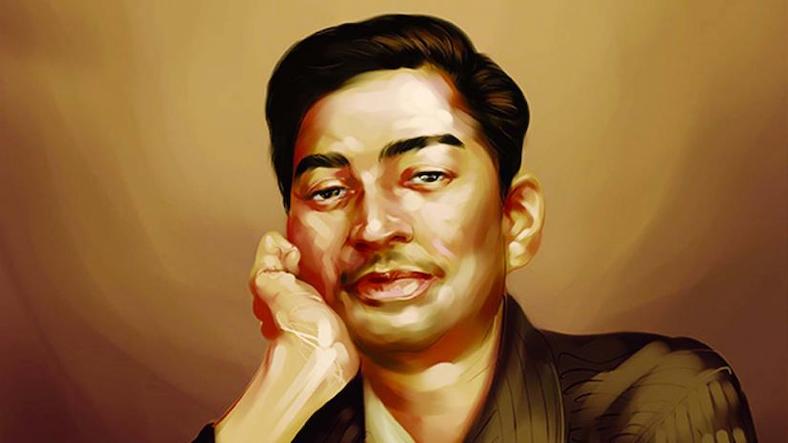Sukanta Bhattacharya (1926-1947) was a renowned Bengali poet and playwright. He was born on August 15, 1926, in Kolkata, British India (now Kolkata, India). Despite his short life, Sukanta Bhattacharya made significant contributions to Bengali literature and is considered one of the most influential poets of the 20th century.
Here are some key aspects of Sukanta Bhattacharya's life and literary career:
- Early Life and Education: Sukanta Bhattacharya was born into a family with a literary background. His father, Nibaran Chandra Bhattacharya, was also a poet. Sukanta showed early signs of poetic talent and began writing poetry from a young age. He studied at Mitra Institution and later joined City College in Kolkata.
- Literary Style and Themes: Sukanta Bhattacharya's poetry is characterized by its intense emotions, vivid imagery and revolutionary spirit. His work often reflects the struggles and aspirations of the working class, the impact of poverty and inequality and the desire for social justice. He infused his poems with a strong sense of social consciousness and a call for revolution.
- Notable Works: Sukanta Bhattacharya's most famous work is the poetry collection "Kobita Songroho," which was published posthumously in 1957. This collection comprises his finest poems, including "Gandhi Hriday," "Bidrohi," "Mrityu Hara," and "Chharpatra." "Bidrohi" ("The Rebel") is one of his most celebrated poems, expressing defiance against oppression and advocating for a revolutionary change.
- Political Engagement: Sukanta Bhattacharya was actively involved in leftist political movements during his lifetime. He was associated with the Communist Party of India and wrote poetry that reflected his revolutionary ideals and the struggles of the working class. His poems often served as a voice for the oppressed and marginalized sections of society.
- Impact and Legacy: Sukanta Bhattacharya's poetry had a profound impact on Bengali literature and society. His powerful and evocative verses continue to resonate with readers and inspire subsequent generations of poets and activists. He is regarded as a symbol of youth, rebellion and the fight for social justice.
- Premature Death: Sadly, Sukanta Bhattacharya's life was cut short at the age of 21 due to tuberculosis. His untimely death was a significant loss to Bengali literature, depriving the world of a promising young talent. Despite his brief life, his poetry continues to be celebrated and remembered as a significant contribution to Bengali literature.
Sukanta Bhattacharya's poetry remains an integral part of Bengali literary canon. His powerful expressions of social consciousness and his ability to capture the emotions and aspirations of the working class have established him as a legendary figure in Bengali literature. His impact on the literary and cultural landscape of Bengal continues to be felt even decades after his passing.
Thanks for reading the about this great personality on our peoples blog, for more such great people read our peoples blog articles.










